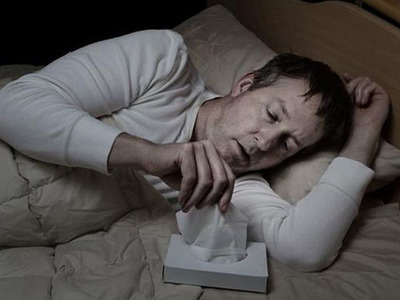
There’s a special kind of rude awakening that has nothing to do with a blaring alarm clock. It’s the one that comes at 3 a.m., when you’re jolted from a deep sleep, not by a sound, but by a sensation. Your pajamas are soaked through, the sheets are clammy beneath you, and a chill runs through your body despite the fact you feel overwhelmingly hot. You’re left lying in a cold, damp puddle, wondering what just happened.
If this scenario is becoming a nightly ritual, you’re far from alone. And while your first thought might be to turn down the thermostat or buy lighter pajamas, the real culprit is often much deeper. Night sweats? Your hormones are raging… a war of transition, and your body’s internal thermostat is on the fritz.
Let’s be clear: these aren’t the mild sweats from a warm room. These are drenching, soak-the-sheets episodes that disrupt your sleep and leave you feeling exhausted and frustrated. And for those in their forties, fifties, and beyond, this is often the body’s most dramatic way of announcing that its hormonal balance is shifting.
The Prime Suspects: The Usual Hormonal Culprits
For Women: The Menopause Marathon
For women, the most common cause of night sweats is the hormonal rollercoaster of perimenopause and menopause. The star players here are estrogen and progesterone. As the ovaries gradually reduce their production of estrogen, the hypothalamus—the part of your brain that acts as your body’s thermostat—gets confused.
It mistakenly thinks your body is too hot and triggers a chain reaction to cool you down: your heart rate increases, blood vessels dilate, and your sweat glands kick into overdrive, resulting in a classic hot flash that can leave you drenched, especially at night. This isn’t a gentle decline; it’s often a series of dramatic fluctuations, and your night sweats are the visible (and very damp) evidence of that internal battle.
For Men: The Andropause Adjustment
Men are not immune to this hormonal shift. While less abrupt than menopause, andropause (or age-related low testosterone) can cause similar symptoms. Testosterone plays a role in regulating body temperature, among many other things. As levels gradually decline, some men experience night sweats, often accompanied by fatigue, irritability, and a decrease in libido. It’s a slower, quieter transition, but the night sweats can be just as real and disruptive.
Beyond the Big Two: Other Hormonal and Health Triggers
While sex hormones are the headline act, they aren’t the only players.
- Thyroid Troubles: Your thyroid gland is the master of your metabolism. An overactive thyroid (hyperthyroidism) revs up all your body’s systems, including your internal furnace. This can lead to heat intolerance and profuse sweating, day and night.
- The Stress Hormone Connection: Chronic stress keeps your body in a state of “fight or flight,” flooding your system with cortisol and adrenaline. This constant state of high alert can dysregulate your body temperature and is a major, often overlooked, trigger for night sweats in both men and women.
- Blood Sugar Rollercoaster: For those with diabetes or prediabetes, nocturnal hypoglycemia—a dip in blood sugar during the night—can be a trigger. Your body, sensing a crisis, releases adrenaline to raise your blood sugar, and a side effect of that adrenaline surge is sweating.
The “Raging” Truth: It’s a Signal, Not a Sentence
The word “raging” is apt. It feels like an internal rebellion. But it’s crucial to see this not as a sign of your body breaking down, but as a powerful signal that it’s going through a significant transition. Ignoring night sweats is like ignoring a check-engine light in your car; the underlying issue needs attention.
Your Action Plan: From Soggy to Serene
- Start a Sleep Log: Note the frequency and severity of your night sweats. Also track your diet, alcohol intake, and stress levels. This can help you and your doctor identify patterns.
- Talk to Your Doctor: This is the most important step. Your doctor can run simple blood tests to check your thyroid, blood sugar, and hormone levels. This rules out other causes and confirms the diagnosis.
- Become a Lifestyle Detective:
- Cool Down: Keep your bedroom cool. Use moisture-wicking bedding and pajamas made of natural fibers like cotton or bamboo.
- Watch Your Triggers: Spicy food, caffeine, and alcohol, especially in the evening, are common triggers for night sweats.
- Manage Stress: Incorporate stress-reducing practices like deep breathing, meditation, or gentle yoga into your daily routine. Calming your mind can help calm your body’s internal thermostat.
- Discuss Treatment Options: If lifestyle changes aren’t enough, talk to your doctor about solutions. These can range from Hormone Replacement Therapy (HRT) for women and testosterone therapy for men (if levels are clinically low), to non-hormonal medications and even certain antidepressants that can reduce the frequency of hot flashes.
Night sweats are more than just an inconvenience; they are a message from your body. They signal that your hormones are in a state of flux, a natural part of the journey for many. By listening to this message, seeking professional guidance, and making targeted lifestyle changes, you can move from feeling like a victim of your own biology to becoming the empowered manager of your health. You can reclaim your sleep, your comfort, and your energy, trading in those raging hormones for restful, dry nights.